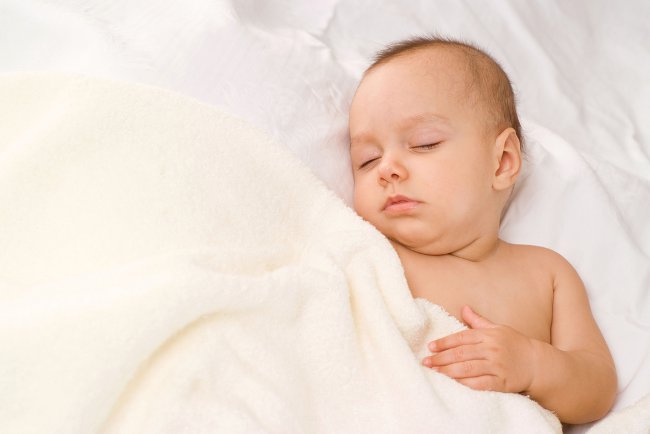Food Poisoning - Treatment: Diet and Pills for Food Poisoning
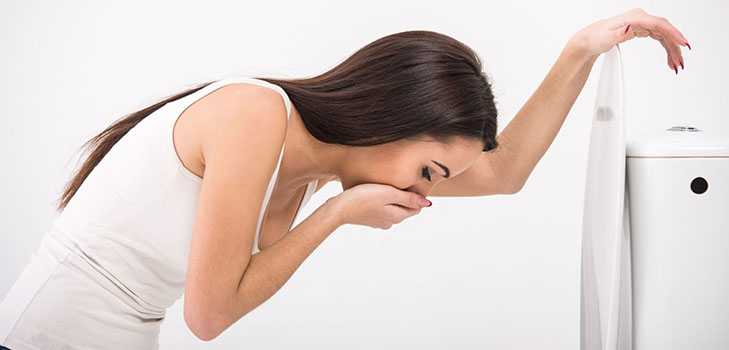
Summer time is associated with health workers notOnly with the time of rest and enjoying sunny days, but also with a high risk of mass outbreaks of food poisoning. This time of year requires maximum attention to what kind of food and how it gets into the body of an adult and a child.
Food Poisoning - Definition
Food poisoning is called a group of diseases,which are transmitted through food products that enter the human body. Pathological conditions in adults and children can develop in several variations:
as a result of the consumption of food containing pathogens and their toxins;
against the background of consumption of food or drinks, which contain a number of chemicals that adversely affect the human body;
in case of inclusion in the personal menu of poisonous products (for a short or long period of time).
On a note! As a rule, the disease manifests itself in the form of family or group outbreaks, but there are also separate clinical cases.
To the list of such poisonings do not carry:
Dysentery Sonne, infection with salmonella is a contagious (infectious) disease that is part of a group of intestinal infections;
allergic reactions of the organism of food character;
the response of the adult or child's organism to taking excessively high doses of medicines, vitamins;
special use of a poisonous substance for the purpose of committing suicide.
Classification of food poisoning
Modern classification of food pathologiesis represented by three groups: poisoning of microbial etiology, of non-microbial origin and of an obscure nature. The latter group does not represent significant interest, since outbreaks of such nutritional deficiencies are typical for certain areas. This includes alimentary paroxysmal-toxic myoglobinuria, the cause of which is considered the consumption of fish in some parts of the world.
Poisoning of microbial origin
The group of food pathologies of microbial etiology is divided into several subgroups:
Toxicoinfection is an acute course of the disease that occurs against the background of eating foods containing a significant amount of bacteria and their toxins.
Bacterial toxicosis (food intoxication) -a disease of an acute nature that has arisen in the case of the ingestion of food or beverages in adults or children contaminated with bacterial toxins, the pathogens themselves may be absent.
Mycotoxicosis - pathology, as a rule, haschronic course. The reason is considered the use in food for a long time of processed grain, legumes and other similar crops containing fungi.
Mixed variants are food poisoning that occurs when two or more types of pathogens enter the body of an adult or child.
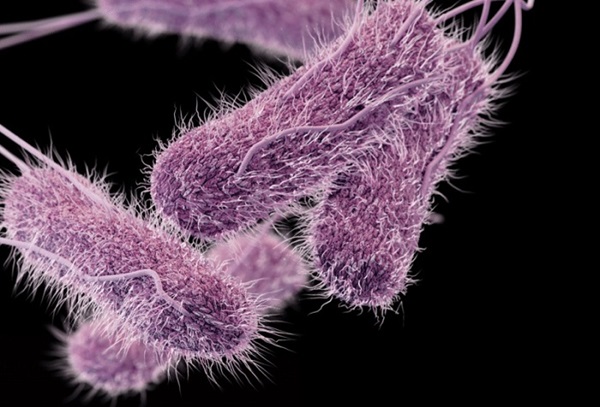
The causative factor of a toxicoinfection can beE. coli, proteus, enterococcus, Klebsiella, pseudomonas, etc. To food intoxications include the ingestion of human enterotoxigenic staphylococci and sticks of butulism.
For the organism of an adult and a baby, the following pathogens of mycotoxicosis are dangerous:
aspergillus;
mold fungus fusarium;
ergot.
Poisonings of non-microbial origin
Food poisoning of non-microbial nature inadult and child also has a division into several subgroups. Intestinal disease can occur in the case of the intake of foods that are poisonous to the human body under certain conditions or those that are inherently dangerous. The third subgroup arises from the entry of chemical impurities into the body.
Causal factors of poisoning, which are considered to be poisonous to humans in any conditions and variations:
some mushrooms (fly agarics, pale toadstools);
mushrooms that can be eaten, but become dangerous as a result of improper heat treatment (morel, freckle, mushroom);
plants (elderberry berries, datura, belladonna);
weeds that grow together with cereals (seeds of heliotrope, sophora);
endocrine glands of killer animals (adrenal glands, pancreas).
In certain situations, to be dangerous to the human body and cause food poisoning can:
kernels of some fruit;
raw beans;
ricinia;
a potato that has sprouted;
mussels;
caviar of some fish during spawning season;
honey (if the honey was a poisonous plant).
Important! Food poisoning against the background of the intake of chemicals in the body is provoked by salts of heavy metals, preservatives, pesticides, food colorings.
Symptoms and signs of food poisoning
Food poisoning in children and adults hasmuch in common. It arises sharply and immediately manifests itself as a vivid symptomatology. If a group of individuals ate the same products that caused the development of pathology, signs of food poisoning develop at the same time period.
On a note! For diseases, infectiousness is not characteristic, as in the case of intestinal infections.
The first symptoms of bacterial poisoning beginto manifest itself already in 3-5 hours from the moment of reception of the food containing microbes and their toxins. The temperature is often subfebrile or high, there is a feeling of heat. Severe vomiting, abdominal pain and projection of the stomach, diarrhea with an admixture of mucus, blood.

Signs of body intoxication:
dizziness;
headache;
weakness.
In some cases, cramps, lowering blood pressure, the appearance of a threadlike pulse. Rarely, but there is a violation of consciousness until its loss.
Symptoms of botulism
The first symptoms of food poisoning with a canine of botulism arise from 4 hours to 3 days. The earlier signs of the disease appear, the more difficult the pathology is to treat. The patient complains about the following:
weakness;
headache;
diarrhea;
attacks of nausea and vomiting;
the temperature is normal or even lowered.
When a patient is examined, the doctor determines whetherthe dilatation of the pupils, the absence of their reaction to light, the omission of the eyelid. Later, other symptoms of the nervous system also attach. The patient can not swallow, chew, talk, there is a paralysis of some groups of the face's muscular apparatus. Involvement of the wall of the intestine and stomach in the process leads to constipation, swelling.
The signs are held until the toxic substances are removed from the body of an adult or a baby.
Important! To treat botulism is necessary only in the hospital of the infectious department of the medical institution.
Poisoning by poisonous fungi and plants
The pathological effect of non-microbial factors is manifested by severe pain in the abdomen, vomiting and diarrhea, significant dehydration of the adult and child's body.
An easy degree is characterized by temporarydyspepsia, severe - delirium, convulsions, hallucinations, icterus of the skin and mucous membranes, loss of consciousness and even a coma.
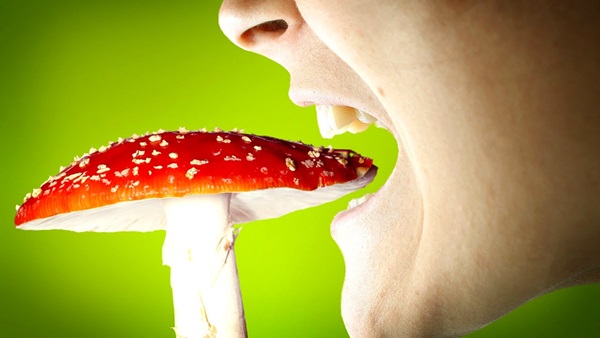
Symptoms of ingestion of pesticides and food additives
The defeat of the human body is accompanied by the following complaints:
bouts of vomiting, diarrhea;
pain syndrome;
dyspnea;
trembling of hands and feet;
temperature 38aboutC and higher;
convulsions;
violation of visual acuity;
involuntary discharge of urine and feces;
salivation.
Treatment of food poisoning
Treatment and diagnosis of food poisoning should be carried out by a qualified specialist. Independent selection of the treatment regimen and recovery of the body is not recommended.
The provision of specialized medical care to the patient is based on several important points:
carrying out the cleansing of the adult or child's organism (gastric lavage, enema setting, drip injection of drugs for detoxification);
acceleration of the elimination of toxic substances;
rehydration (fight against dehydration of the body);
correction of power, revision of the individual menu;
support of basic life functions.
Gastric lavage and other emergency measures should not be performed at home if:
patient over 60 or under 14 years of age;
the patient suffers from a chronic disease;
a person has a tendency to allergic reactions;
food poisoning by fungi or plants;
symptoms and signs of damage to the nervous system (impaired consciousness, seizures, epileptopodobnye attacks, etc.).
Important! In the above cases, you must immediately call an ambulance.
First aid for food poisoning
What to do with food poisoning, should knoweveryone, especially if the family has children. PMP for food poisoning is the immediate washing of the stomach. If the procedure is carried out at home, give the patient plenty of water, and then press the root of the tongue to induce vomiting. In a hospital or outpatient clinic, irrigation for adults and children is carried out using a gastric tube. The washing procedure is carried out until only clean water is released from the stomach.
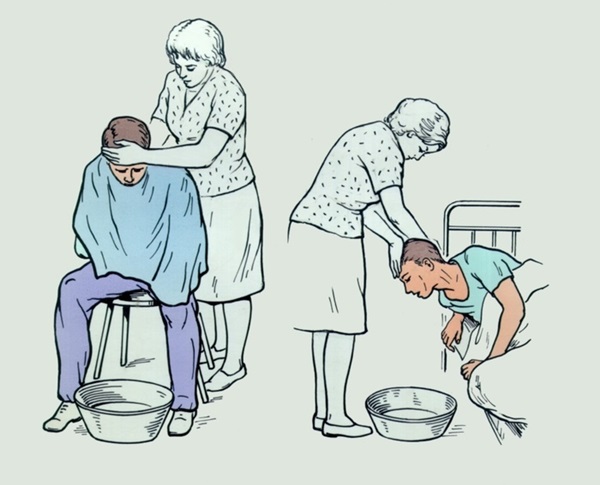
If the patient experiences vomiting uncontrollable,you should still give him plenty of water. This will prevent dehydration. Diarrhea - although a symptom of the disease, but in the first few hours to stop it is not necessary, because in this way the body is cleared of toxic substances. Disposal of toxins is accelerated by the intake of activated carbon or Carbolen.
With the certainty that the state arosedue to the ingestion of mushrooms, it is better to do the washing not only with water, but also with a weak solution of potassium permanganate, in which activated charcoal powder is added. Simultaneously, they put an enema to speed up the cleansing of the intestinal tract, heat it up and give a lot of water, sweet tea.
Important! Even if the condition of an adult patient does not worsen, you still need to go to the hospital. When it comes to a child, all of the above assistance is provided by doctors.
Helping a child with uncontrollable vomiting:
The patient must comply with bed rest.
After each attack of vomiting, you should put the child on the bed so that his head is turned in the side. This will prevent the ingress of vomit into the respiratory tract.
Between attacks, be sure to drink.
To eat to give nothing.
In parallel, call an ambulance.
Forbidden:
Induce vomiting if the patient is unconscious, in pregnancy and in a child younger than 2 years.
Apply heat to warm the area of the front abdominal wall.
Take medications that "hold together" with diarrhea.
Give to drink sick water with gas.
Tablets from food poisoning
Treatment of food poisoning is carried out in a hospital under the supervision of specialists. Initially, the doctor prescribes medication for rehydration, that is, restoration of the water balance in the body.
It will be necessary to drink Regidron, Oralit or Litrosol according to the scheme prescribed in the instructions to the medicines. Drip Trisol, Acesol and others are injected into the vein for the same purpose.
Enterosorbents - the tools that will helpremove toxins from the body. Drugs are not prescribed at high temperature, with caution to the child and the elderly person. Use activated carbon, Smektu, Enterosgel.
With severe pain and spasms in the abdomen, antispasmodics are prescribed:
But-shpu;
Spazmalgon;
Drotaverine.
Indomitable vomiting and severe diarrhea, which is notterminated for a long time, also require medication. When vomiting is used Tserukal, with diarrhea - Loperamide. High temperature is rare in food poisoning, but if necessary, use antipyretic drugs based on paracetamol or ibuprofen.
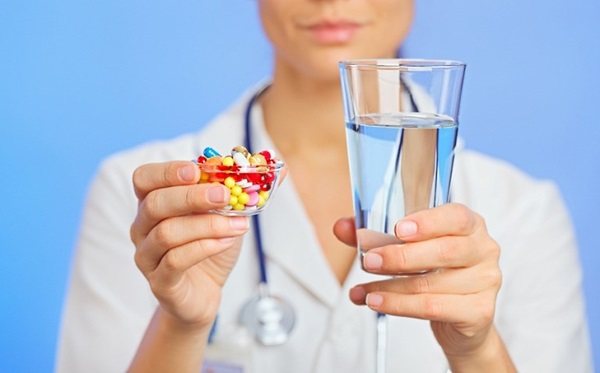
Reception of antibiotics is not always justified. More often such treatment only aggravates disturbance of a status of microflora GASTROINTESTINAL TRACT. Reception of antibacterial tablets is desirable under condition of presence of the mixed poisonings. Use drugs nitrofuran series, fluoroquinolones, sulfonamides.
Treatment of adults and children also provides forreception of pre- and probiotics, that is, medicines that restore the state of microflora in the body and promote the reproduction of normal microorganisms. In the treatment of adults, you can use Normase, Linex, Lactobacterin, Bifidumbacterin forte.
Diet for food poisoning
Help with food poisoning does not end withgastric lavage and drug treatment. It is important to adjust the power supply. What you can eat with food poisoning, tell the doctor in charge. He will select an individual menu for the patient, given his age, constitution, general health and severity of food intoxication.
Diet for food poisoning is based on the following principles:
On the day of vomiting you can not eat, you need to drink a lot.
From the 2nd day to the diet add crumbs, liquid puree based on vegetables.
From the 3rd - a broth based on vegetables or chicken (only white meat), liquid rice porridge, crackers.
Meals are small, fractional, but often.
Daily number of calories should be in the range of 2100-2200 kcal.
All products must be boiled, steamed, steamed.
It is necessary to exclude the admission to the body of an adult and a child:
bread and flour;
milk and food based on it;
fatty varieties of meat and fish, broths on their basis;
sweets;
first courses with the addition of cereals.
What to drink when food poisoning:
still water;
sweet tea;
Saline solutions purchased at the pharmacy.
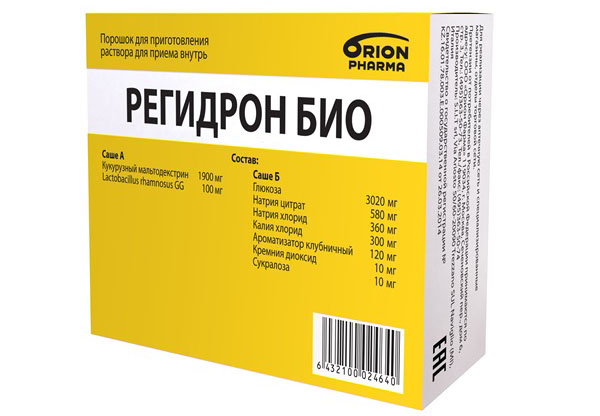
In 3-4 days it will be possible to add broths tothe basis of dog rose, camomile chamomile, raisins, dill. Food after food poisoning should be similar for several weeks until the body is fully restored.
Food Poisoning in a Child
Food intoxication in children occurs muchheavier than in adults. In a baby of the first year of life, a pathological condition may occur during the transition to "adult" nutrition, or in the event that the breast-feeding mother herself received food poisoning.
Important! There are cases when the baby eats vegetables that are not properly stored, for example, in cellars where there are a large number of rodents.
Signs of the development of the disease in children are similarsymptoms of the pathological state of adults. The baby becomes capricious, demanding, sluggish. The provision of medical care for food intoxication is necessary in the following cases:
diarrhea, which lasts more than 2 hours, or the presence of blood impurities in the stool;
indomitable vomiting;
weak and frequent pulse;
pallor or cyanosis of the skin;
taking medicines or simply drinking water causes vomiting;
severe weakness;
abdominal pain;
temperature increase;
change of color of urine;
yellow shade of skin and mucous membranes.
Gastric lavage for children is betterespecially in the first few years of life. The main thing is, before the ambulance arrives, follow the recommendations of specialists about the replenishment of fluid in the body. A one-year-old should receive 0.1 liters of fluid, children under 6 years old - 0.1-0.2 liters, up to 12 years - 0.2-0.3 liters after each attack of vomiting. You can not eat anything, especially if you do not know the exact diagnosis. Treatment is carried out exclusively in the hospital.
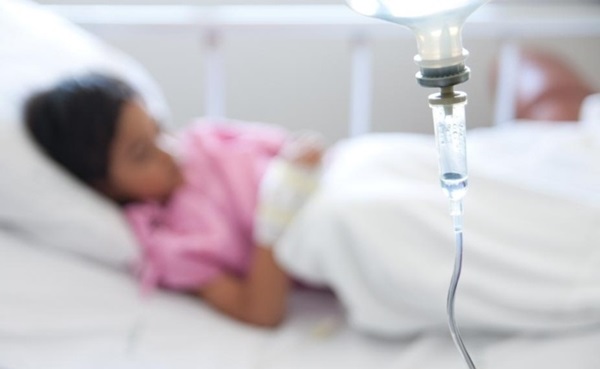
Food poisoning in pregnant women
The most dangerous condition for the bodypregnant - food poisoning with poisonous mushrooms, because toxic substances are able to worm through the placental barrier. For any signs of pathology, you should seek help, and immediately.
Gastric lavage should be performed by specialists inconditions of hospital, because indomitable vomiting or its evocation at home (for the purpose of treatment) can lead to an increase in uterine tone. Pregnant women are allowed to take enterosorbent:
Activated carbon;
Enterosgel;
Polysorb.
Important! Every 10-15 minutes there should be a reception of water or sweet weak tea.
Treatment of food intoxication is carried out inhospital. Activated charcoal can be taken at any gestation period. To prevent the interruption of pregnancy, a woman is given magnesium sulfate (up to 36 weeks), Papaverin. If necessary - drugs that improve blood circulation in the placenta, antibiotics (selected individually, strictly under the supervision of specialists). Obligatory is infusion therapy.
Several times a day monitor blood pressure, pulse, temperature of a woman, listen to the heartbeat of the fetus, clarify the state of other vital functions of the baby's body.
Prevention of food poisoning
Prevention of food poisoning requires the implementation of simple rules for the hygiene of food intake, its preparation and storage:
All inventory, used for cooking and cutting food, thoroughly washed with soap.
The cutting of raw and finished food should take place on different boards.
Buy fresh products, the storage of which took place in compliance with the rules.
Before eating vegetables and greens, soak them in water with a few drops of apple cider vinegar, then thoroughly wash with water.
Admission of expired products is prohibited.
It is necessary to observe the rules of personal hygiene.
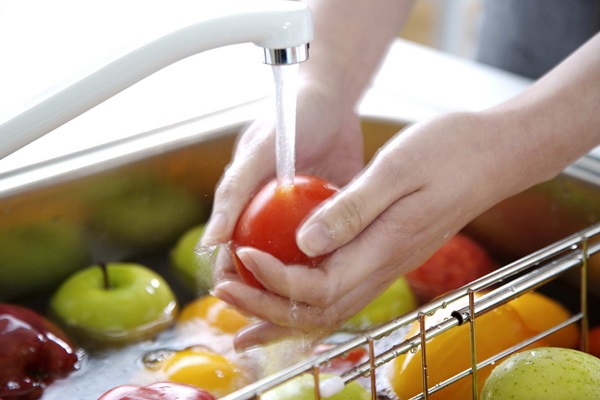
It is necessary to refuse the intake of mushrooms andplants of unknown origin, the use of drugs with expired shelf life. It is necessary to take good care of your health, because some food intoxication can be fraught with serious consequences on the part of the kidney, nervous system and other vital organs and body systems.
Video: help and treatment for food poisoning













